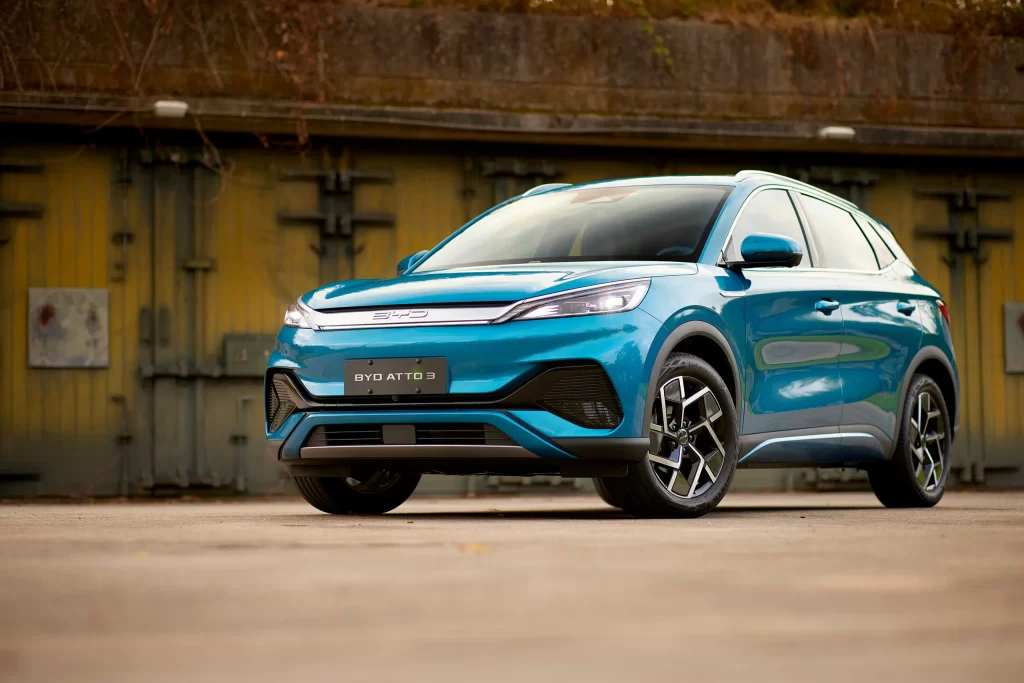The Chinese automaker BYD briefly eclipsed Tesla as the world’s top seller of electric vehicles. Even though it doesn’t have access to the US market, BYD’s affordable EVs are popular in China.
Here’s how a little-known Chinese brand proved it could go toe-to-toe with an industry giant. BYD may not be a household name in America, but it recently made itself known in a big way. For a brief moment earlier this year, the Chinese automaker unseated Tesla as the world’s top seller of electric cars.
Even though you won’t see a BYD car in America (yet), the company has built an affordable brand that’s popular in China and elsewhere. It also just announced a Cybertruck competitor, the BYD Shark. Here’s the story of the company that proved it could outsell Elon Musk. BYD doesn’t stand for anything — officially.
Wang Chuanfu and a cousin founded BYD in 1995. Then a 29-year-old government researcher, Wang came from a family of rice farmers. He earned a university scholarship and eventually moved to the Special Economic Zone in Shenzhen to start his new company.
The “YD” in the name came from Yadi, the village in Shenzhen where the company originally was, one South Korean newspaper reported. The “B” was added later as a promotional tool, the report said. Wang has said in interviews that, taken together, the BYD name doesn’t stand for anything in particular.
It was only later that Wang derived the slogan “Build Your Dreams.” The company has also acquired another nickname: “Bring Your Dollars.”
The company was originally a cellphone-battery manufacturer.
The company’s original business wasn’t cars. It was cellphone batteries. BYD challenged the established Japanese suppliers Toyota and Sony by providing a cheaper alternative. By 2002, companies such as Motorola, Nokia, Sony Ericsson, and Samsung were all using BYD batteries. They started making cars in 2003. BYD moved into the car business after buying Xi’an Tsinchuan, a failing state-owned automaker that was then an arm of the defense contractor Norinco, the South China Morning Post reported.
The company launched its first car in 2005. The BYD F3 was a compact sedan that resembled the Toyota Corolla. It sold for as little as 40,000 yuan, or about $5,850. Warren Buffett was a key early booster.
The billionaire investor Warren Buffett was one of the high-profile names who took an interest in BYD early on. Looking to invest in China’s booming car market, Buffett toured BYD’s headquarters. The Wall Street Journal reported that while the Berkshire Hathaway tycoon was there, Wang took a sip of battery fluid to prove how clean his batteries were. Buffett was so impressed by the experience that he offered to buy 25% of the company. Wang declined that offer, but Buffett was not deterred. Berkshire Hathaway acquired a 10% stake in BYD — for $232 million — in 2008. Their first electric car drew scorn from Elon Musk.
The company debuted its first fully electric vehicle, the E6, in 2010. Benefiting from Chinese government subsidies, it was able to compete with its Japanese counterparts. But not everyone was impressed. Tesla CEO Elon Musk laughed in a 2011 interview when asked whether he considered BYD a serious rival to Tesla. “Have you seen their car?” he said. “I don’t think they make a good product. I don’t think it’s particularly attractive. The technology is not very strong.”
BYD’s hybrid cars turned it into a titan of Chinese automakers.
BYD established itself as one of the top automakers for hybrid vehicles in China in the 2010s. Its most popular offering was the Qin, introduced in 2012, which became one of the best-selling cars in China.
That wasn’t the only offering that propelled BYD to prominence, however. The company also released the Tang, a hybrid SUV, and partnered with Daimler AG (now Mercedes-Benz) to make its Denza line.
BYD took the EV crown from Tesla — briefly.
Even though most of its sales in the fourth quarter of 2023 came from the Chinese market, BYD made headlines across the globe when it seemingly did the impossible — it unseated Tesla as the world’s top seller of electric cars.
The Chinese automaker rode the EV wave on the back of its new Seagull, which debuted for 73,000 yuan, or about $10,000, as well as its Song, Qin Plus, Dolphin, Yuan Plus, and Han EVs.
Tesla reclaimed the crown in the first quarter of 2024, though both companies saw steep declines in their sales.
BYD’s Shark takes aim at Tesla’s Cybertruck



